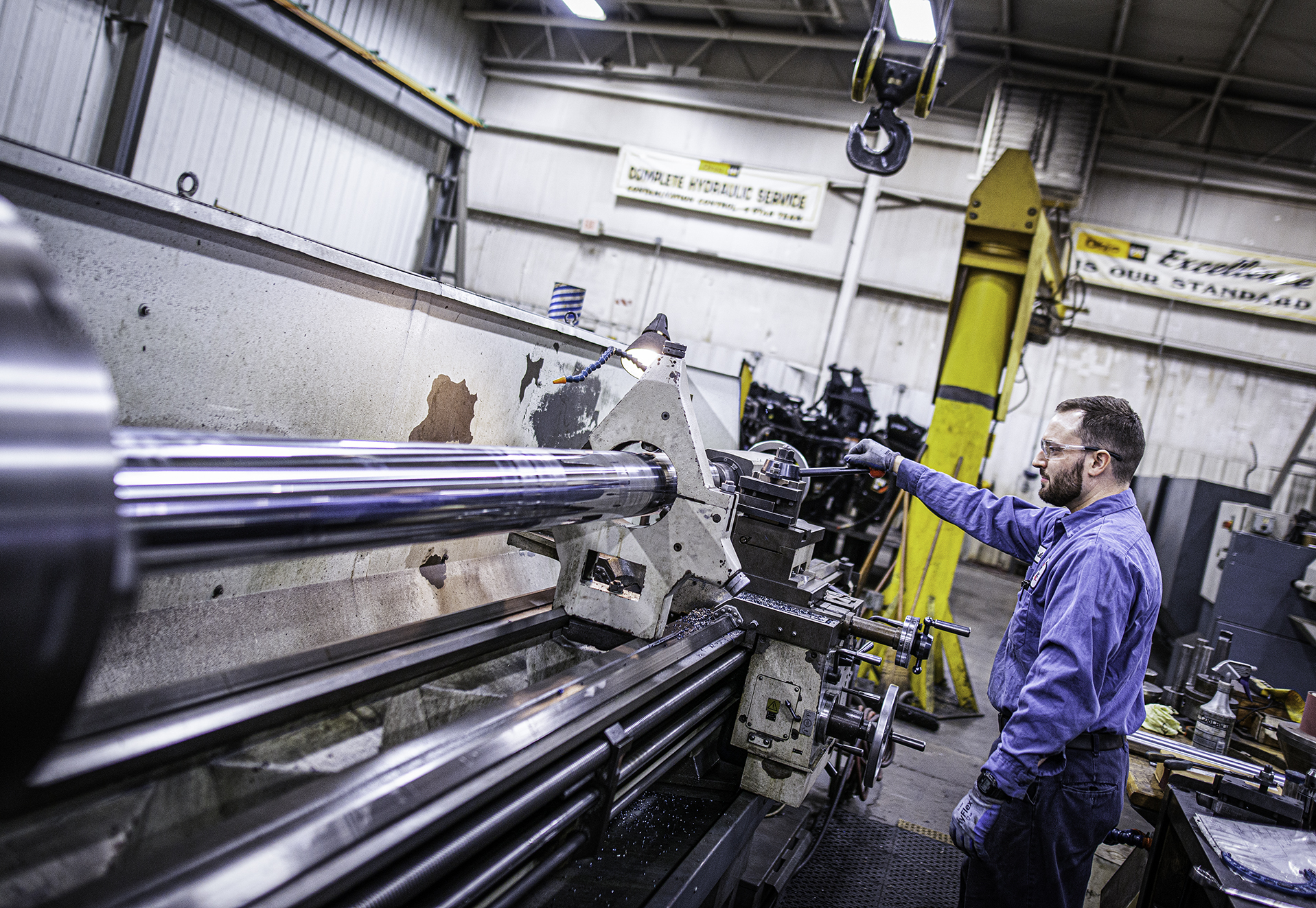What are the common signs of hydraulic cylinder failure?
 Hydraulic cylinders are vital components in many machinery systems, from construction equipment to industrial machines. When they fail, they can cause significant downtime, leading to costly repairs and lost productivity. Recognizing the signs of hydraulic cylinder failure early can help prevent major damage and save you time and money. If you notice any issues, it’s important to consider hydraulic cylinder repair services to avoid further complications. In this article, we’ll explore the common signs of hydraulic cylinder failure, why they happen, and how to address them.
Hydraulic cylinders are vital components in many machinery systems, from construction equipment to industrial machines. When they fail, they can cause significant downtime, leading to costly repairs and lost productivity. Recognizing the signs of hydraulic cylinder failure early can help prevent major damage and save you time and money. If you notice any issues, it’s important to consider hydraulic cylinder repair services to avoid further complications. In this article, we’ll explore the common signs of hydraulic cylinder failure, why they happen, and how to address them.
Understanding Hydraulic Cylinder Functionality
Before we dive into the symptoms of hydraulic cylinder failure, it’s important to understand their function. Hydraulic cylinders convert hydraulic energy into mechanical motion. They consist of a piston and rod within a cylinder housing. When pressurized hydraulic fluid enters, it pushes the piston, causing the cylinder to extend or retract. This simple but powerful mechanism is crucial in many heavy-duty operations.
Leaking Hydraulic Fluid
One of the most noticeable signs of a hydraulic cylinder failure is fluid leakage. If you spot hydraulic fluid pooling around the cylinder or find oil stains on your equipment, it’s a clear sign that something’s wrong. Leaks can happen at various points, including the seals, rod, or cylinder housing. While minor leaks might seem harmless, they can lead to more severe issues like reduced efficiency or total failure over time.
Reduced Performance or Power
A sudden drop in performance or power is another indicator that your hydraulic cylinder might be failing. If your equipment is not moving as quickly or as smoothly as it should, it could be due to issues with the cylinder. Hydraulic cylinders rely on pressurized fluid, and if there’s a problem with the system, such as a clogged filter or an internal fault, it will reduce the cylinder’s ability to perform optimally.
Jerky or Uneven Motion
If you notice that the hydraulic cylinder’s movement is jerky or uneven, this could be a sign of internal damage. Hydraulic cylinders are designed to operate with smooth and consistent motion. When internal components like the piston, seals, or rod become damaged, it can cause irregular motion. This might be a result of contamination in the hydraulic fluid or physical wear and tear on the parts.
Unusual Noises
Hydraulic cylinders should operate quietly, but if you start hearing unusual noises, such as grinding, whining, or banging, it’s time to pay attention. These sounds often indicate that there’s something wrong inside the cylinder or with the hydraulic fluid. For instance, a grinding sound could point to metal parts rubbing against each other due to insufficient lubrication, while a whining noise might suggest air or cavitation within the hydraulic fluid.
Cylinder Drift
Cylinder drift happens when the cylinder moves or shifts position without input from the operator. This issue is often caused by seal wear or damage. When the seals deteriorate, the hydraulic fluid can leak past them, leading to the cylinder drifting. If this happens, the cylinder may not hold its position, making it difficult to maintain precise control over machinery or equipment.
Overheating
Hydraulic systems rely on the flow of fluid to maintain temperature balance. If the hydraulic fluid becomes contaminated or the system is overloaded, it can lead to overheating. When a hydraulic cylinder fails to operate efficiently, it may overheat, causing the fluid temperature to rise beyond safe levels. Overheating can cause the seals to break down faster, accelerate fluid degradation, and increase the chances of failure.
Visible Damage to the Cylinder or Rod
A visual inspection of the hydraulic cylinder can also reveal signs of failure. Look for dents, scratches, or cracks on the cylinder housing or the rod. These physical damages could be the result of debris getting into the system, improper handling, or the natural wear and tear of the equipment. Even minor damage can cause significant issues if not addressed quickly.
Contaminated Hydraulic Fluid
Hydraulic fluid contamination is one of the leading causes of cylinder failure. Dirt, dust, water, or other foreign particles in the fluid can damage seals, pistons, and other internal components of the cylinder. Contaminated fluid can also affect the performance of the entire hydraulic system. Regularly checking and maintaining clean hydraulic fluid is crucial to ensuring the longevity of the cylinder.
Inconsistent Pressure Readings
Hydraulic cylinders require consistent pressure levels to function correctly. If your system is showing fluctuating or inconsistent pressure readings, it could indicate a failing cylinder. Pressure irregularities may occur due to a leak, faulty valve, or damaged components within the cylinder. Monitoring pressure gauges and other diagnostic tools will help you catch these issues early.
Cylinders Taking Longer to Respond
If the hydraulic cylinder is taking longer to respond to commands or is slower to extend or retract, it’s a sign that something isn’t right. Slow response times can occur due to low fluid levels, clogged filters, or internal damage to the cylinder itself. This issue can lead to inefficient operation and could be a sign of potential failure.
Preventing Hydraulic Cylinder Failure
While some hydraulic cylinder failures are inevitable due to normal wear and tear, there are steps you can take to prevent premature damage. Regular maintenance and inspections are key. Ensure the hydraulic fluid is clean, topped off, and free from contaminants. Also, check for leaks, cracks, or other visible damage. Proper installation and handling, as well as using the right fluid for the system, will help keep your hydraulic cylinders in top condition.
Conclusion
Recognizing the signs of hydraulic cylinder failure early can save you time, money, and prevent extensive downtime. By keeping an eye out for leaks, reduced performance, jerky motion, unusual noises, and other symptoms, you can address issues before they become severe. Regular maintenance and proper handling of the system will help ensure the longevity of your hydraulic cylinders and keep your equipment running smoothly.



